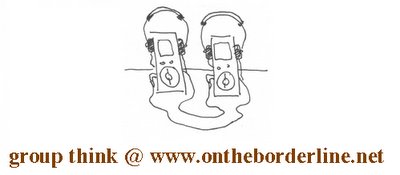Lynn Smith-Lovin
Duke University sociologist

Why all the bloggers at OTBL think alike
Experts call it homophily, we call it birds of a feather — and it explains the bitter partisanship of our times
BY SHANKAR VEDANTAM
Washington Post
Thinkers from Plato and Aristotle onward have observed that people seem to be drawn to others like themselves. Sociologists call this phenomenon homophily, a somewhat grand word to describe the idea that birds of a feather flock together.
With a midterm election less than three weeks away, homophily is playing a powerful, but largely invisible, role in politics.
Studies show that most people interested in politics associate nearly exclusively with others with similar political beliefs. In fact, research by sociologist David Knoke at the University of Minnesota shows that if you know whether a person's friends are Republicans, Democrats or independents, you can predict with near certainty that person's political views.
Homophily may help explain some of the bitter partisanship of our times — when your friends are drawn exclusively from one half of the electorate, it is not surprising that you will find the views of the other half inexplicable.
Read more @ Pioneer Press.

No comments:
Post a Comment